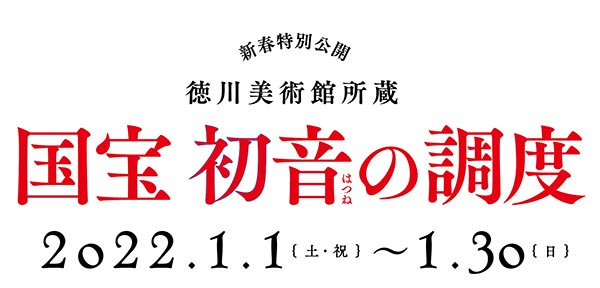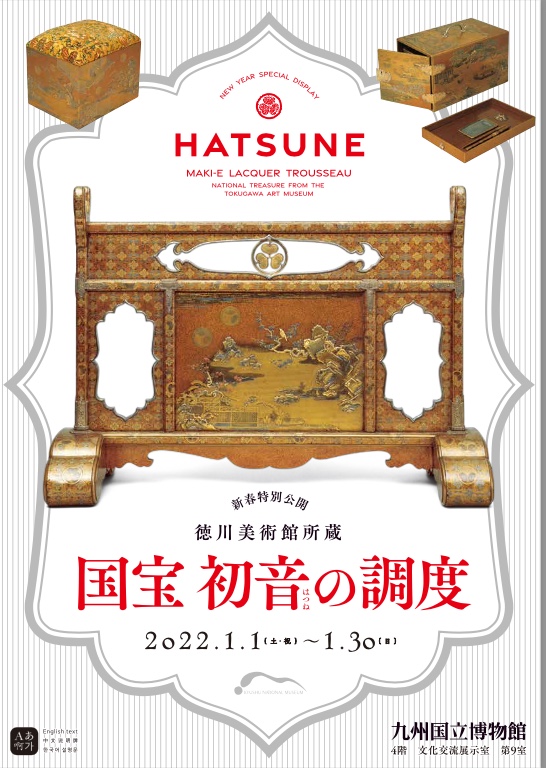New Year Special Display:
Hatsune Maki-e Lacquer Trousseau
National Treasure from the Tokugawa Art Museum
Exhibition period:
1 January 2022 (Fri) – 30 January 2022 (Sun)
Venue:
Cultural Exchange Exhibition Hall, Room 9
Introduction:
Introduction: The New Year—a time for new things. New clothes, new resolutions, and perhaps even a new
chapter in life. All these come together in our tenth annual New Year Special Display of the Hatsune
Trousseau, a National Treasure on loan from the Tokugawa Art Museum. This spectacular trousseau is an
example of a set of furnishings that would have been created specially for a princess in the Edo period
on the occasion of her marriage. It was produced in 1639 for Princess Chiyohime’s marriage, and followed
her to her new home.
The Hatsune Trousseau is mostly decorated with motifs from the “Hatsune” (The First Warbler) chapter of
the Heian-period narrative The Tale of Genji. This chapter features the protagonist Prince Genji
celebrating the New Year with his family, and contains a New Year’s poem that mentions “the first cry”
of the warbler. Japanese culture places particular importance on “firsts” around the New Year—first
visit to the shrine or temple, first dream of the year, first sunrise, and so on. It is for this very
connection that our museum has chosen to exhibit the Hatsune Trousseau during the start of each
year.
On display are three items from the Hatsune Trousseau, all decorated extravagantly in gold and silver
using maki-e lacquer. Supplementing them are paintings featuring other Genji-related motifs, as
well as items from another Edo-period trousseau that had belonged to the Nanbu clan of Morioka Domain.
Exhibition Highlights

ⓒ Tokugawa Art Museum Image Archives/DNPartcom
National Treasure Hatsune maki-e sword stand
1639
Tokugawa Art Museum
This stand is used for displaying sword mountings indoors. During the Edo period, women from samurai families were required to be skilled in both literary and martial arts, and would have owned a personal set of the necessary swords and armor.

ⓒ Tokugawa Art Museum Image Archives/DNPartcom
National Treasure Hatsune maki-e lacquer elbow rest
1639
Tokugawa Art Museum
Elbow rests like this are for one to lean against while seated, and also offers some storage space in the form of a tray inside. The cushion on the top of this object is filled with Java cotton, and covered in vibrantly decorated velvet.

ⓒ Tokugawa Art Museum Image Archives/DNPartcom
National Treasure Maki-e lacquer inkstone box depicting “Kochō”
1639
Tokugawa Art Museum
This inkstone box comes with compartments, as well as a handle on top. It has a tray inside for the inkstone and brush, as well as drawers for storing paper and other stationery items. Unlike the rest of the trousseau, this box depicts the “Kochō” (Butterflies) chapter of The Tale of Genji, instead of the preceding “Hatsune” chapter.


